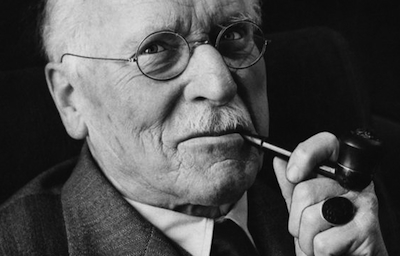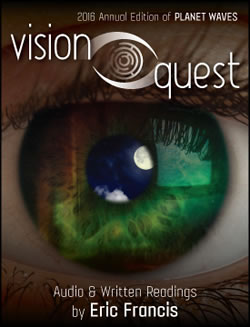by Stephani Stephens
Sometimes I wonder if I am going crazy. What is it about this particular era, all the white noise ‘out there’ making the ‘in here’ the only way to make sense of it all? The louder and more hectic life becomes, the more I crave the confines of an inner perspective to help me find my way.

Carl Gustav Jung
It is no wonder with my Sun and Moon in Libra and six planets sitting over the 8th and 9th houses. I am an ENFP (Extravert, Intuitive, Feeling, Perceptive) on the Myers Briggs scale, a Wooden Dragon in Chinese astrology, and a medium with a PhD.
I am also a Jungian, meaning that how I live, how I read, what I watch, and how I interface with the world is influenced by the ideas of Carl Jung. And with all of these prisms of perspectives and ways to know myself, I ask almost weekly, “Do I fit in? Do I belong here and now?”
Having all of these ways to explore who I am doesn’t make living any easier. Rather, I become more fluent in the specifics of who I am while I’m struggling.
By calling on divination, astrology, psychology, shamanic techniques and other chthonic assistance (concerning, belonging to, or inhabiting the underworld), I can honestly say that at least I’ve tried to grapple gracefully with the ebbs and flows of life. I’ve tapped into those internal settings that bring meaning and value to my decisions. Perhaps this is why I am a fan of Jung. He too struggled, doubted, and faced his loudest inner critics while wondering whether he fit in — and if so, how?
Jung suffered such deep-seated conflict about how he was experiencing the world and what he was seeing in his dreams and visions that for months he became emotionally paralyzed. He had a ‘confrontation with the unconscious’ and as a result produced diaries, which are now known as The Red Book.
The Red Book reveals a process, although spectacularly colored and convoluted, toward a spiritually-minded psychology. Jungian psychology values the autonomous growth of the person toward Selfhood. This path, which Jung saw as the process of becoming singularly and wholly ourselves, he called individuation.
Jung plummeted into a struggle with voices and visions of his own unconscious process and in six months emerged with a new understanding of what those visions meant to him. Through these encounters he discovered how to live with, and live from, those visions as well as how to assist others with what might be their own troubling demons.
From these intense encounters, Jung developed a method for making the unconscious conscious. He forged a new path by which visionary content was considered a potential therapeutic process. Accepting such content could assist the person toward a deeper understanding of themselves. He called this method of engaging the unconscious active imagination.
As we enter the Age of Aquarius, we are encountering a time when the unconscious seems to be of immediate significance. This proximity is calling for more ways to engage the unconscious. Almost as if to say that two thousand years of unacknowledged unconscious material is now making its way to a collective knowing and that we are all going to need ‘to live our charts’.
Astrologer Alice Howell describes this shift in her book The Heavens Declare: Astrological Ages and the Evolution of Consciousness as moving from the struggle between religion and science to the “discovery of the inner Self” or that “holiness within the wholeness of this world.”[i] She sees this evolution symbolized by the first photo taken of the Earth. According to her, “This view from the moon is as great a shift in viewpoint as the one now required within us.”
While such disciplines as astrology, necromancy and divination were suppressed into the sidelines of history and traded for the Enlightened era of scientific discovery, the perspectives these disciplines revealed have been amassing their own momentum. These approaches have been quietly waiting until the time when science would lead us into a cul-de-sac of knowledge, and a more introspective and spiritually integrated perspective would call for emergence.
Jung assisted with this evolution at a time when psychology was able to address the ills of troubled minds by offering an alternative mental and spiritual vocabulary. This assisted people who never really left the esoteric arts, or perhaps whom such arts had never really left. Jung’s theories of the collective unconscious, synchronicity and archetypes have been enhanced and made meaningful for the Age of Aquarius seeker, disenchanted with scientific materialism and looking for the answer to ‘Is this all there is?’
I am often impressed with how savvy people have become in terms of awareness of the patterns playing out in their relationships. Coupled with this is their keen sense of feeling out of place and time. As if some vague cloud were hovering, blinding people to their reason for living. Such resolute commitment to explore opens up the space of opportunity between where one is and where our souls are calling us to be. In a sense, we have matured on from Joseph Campbell’s mantra “Follow Your Bliss” to something more seasoned and more embodied; something more like “Live your Self.”
By way of example from The Red Book, Jung has a vision of being dragged off to the ‘madhouse’, probably a particularly sobering vision for him at the time. A doctor/professor (interesting, as Jung was both) asks him if he is hearing voices. “You bet,” he replies and the professor wonders if the voices are following Jung. But Jung answers, “Oh, no, Heaven forbid. I summoned them.”
Here, Jung feels perfectly fine with his voices and visions but it is ‘the problem of madness’ and how to integrate it into life which is unsettling. His problem comes when he attempts to understand his relationship to the unconscious from a socially acceptable vantage. How might one live with such vision and inspiration in a world that does not value such things? As he ponders this in the hospital, he comes to the self-question, “What if… society were integrated into madness?”
In other words, what if we were to take our perceptions, our inner prisms, make them our own and live from there?
Jung grappled with his dark night of the soul to emerge with an understanding that madness has its own riddle to play in our lives. Our madness is often our greatest burden, and in turn, our gift back to the world.
When I myself experience those intense moments, suffering from the white noise of life and wondering whether I belong just now in this time and space, I remember that our visions and our stories are the craft and artistry called living, and I am, in fact, not going crazy. Rather, I look toward embracing my personal madness, my chart, and my Self with love.
Stephani L. Stephens is a teacher of Latin and has recently relocated to Antipodean lands Down Under. Her PhD is in Jungian Psychology with an emphasis on visionary psychology.


Dear Stephani,
Im reading this from the CG Jung Institute in Kusnacht (ZH) where I am studying. The spirits of Jung would be proud of your discourse, thanks for sharing with us:)
Brinda,
Sorry so late in replying!
Kusnacht is a special place, indeed. I remember in 2004 spending the summer there and thinking “what exactly am I doing here?” and so began my journey. I feel there is seeping that happens there, an immersion of sorts when the psyche finds its compass.
Enjoy your time and studies there and thank you for your kind words.
Stephani
This essay was such a fine way for me to encounter this book so I can further delve into Jung’s work. I just sent an interlibrary loan request to my local public library for it, and I feel like this book will assist me in doing inner work no therapist to date has even been familiar with.
It’s a sad commentary on the state of current academic psychological thinking that while I was studying psychology in college, any professor who even thought to address Jung’s contributions to the field just mocked and dismissed him, like some kind of funny old kook. I’ve read some of his work since then, but haven’t delved into it, probably out of fear of being a funny old kook myself. Turns out? I am a funny old kook, even if I don’t look nearly as old as I feel, and I just want to thank you for taking the time to discuss some of Jung’s own struggles with his unconscious material, as well as your own. I haven’t known how to deal with some of the more troubling aspects of my unconscious as it presents itself, and I’ve got a feeling this book will help me light the way.
Thank you so much!
Dear Funny Old Kook (Jamie)
I am so pleased your living from the wise old man inside, your source of wisdom. I think Jung is at his best when he is able to meet us where we are, and in your case it appears you’ve found him on your path. I think The Red Book is some brave work toward the struggle to understand the Self in harmony or conflict in the world.
Thanks so much for your comments (so sorry so late!)
Best,
Stephani